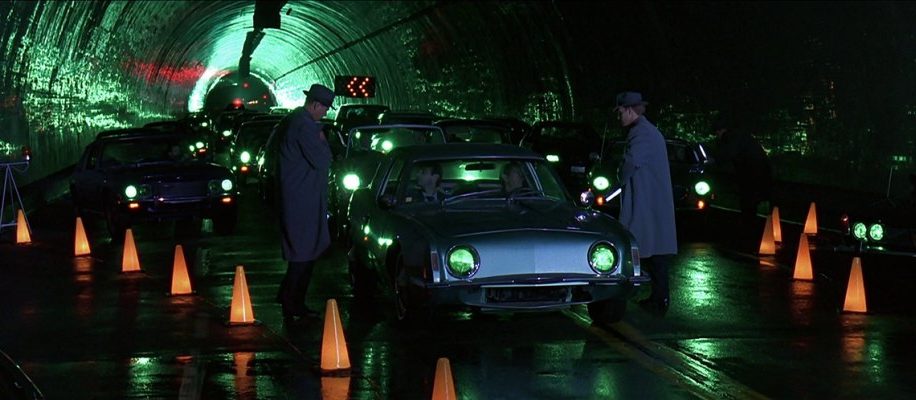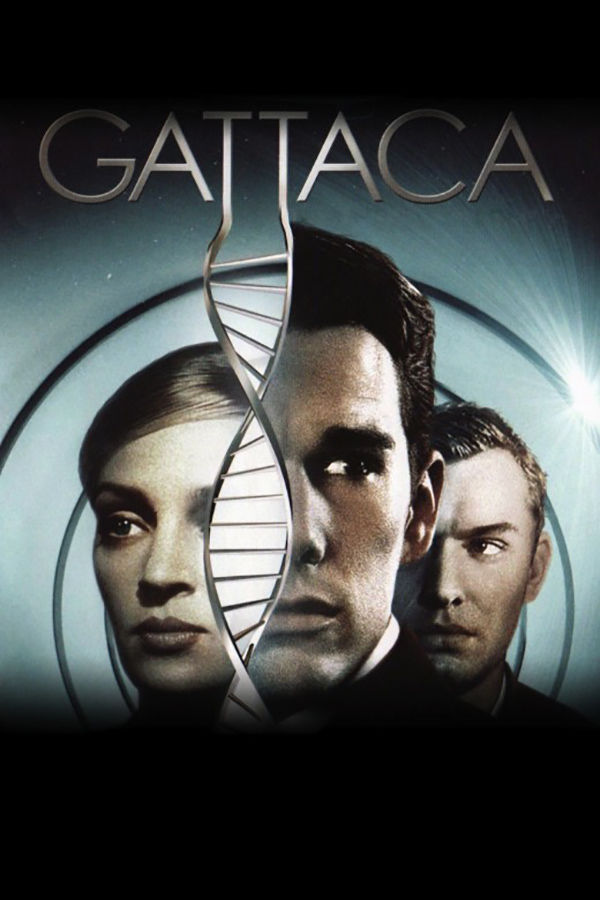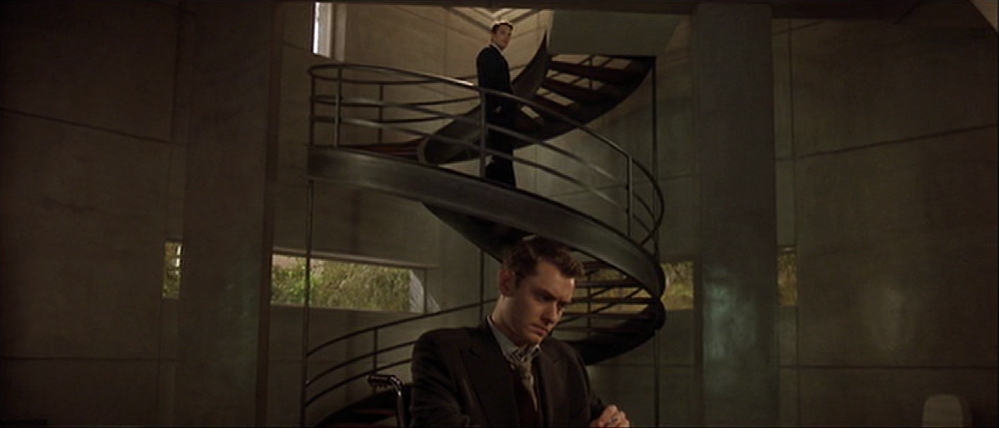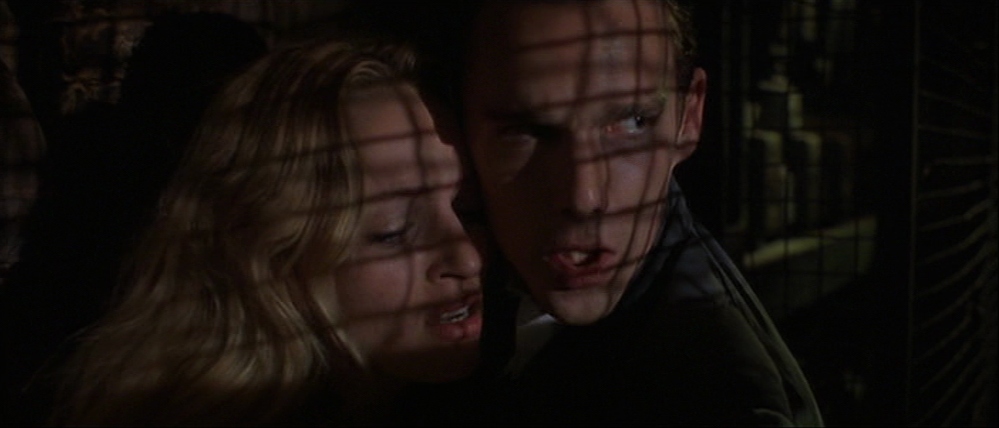

“No one exceeds their potential. If they do it just means we didn’t judge it accurately in the first place.”
Set in the “not too distant future,” the opening sequence of Gattaca quickly conveys a horrifyingly feasible dystopia via montage and voiceover narration, the latter of which is the film’s only lamentable flaw.
Ethan Hawke is Jerome Morrow, a genetically superior individual who has been selected as lead navigator for a mission to Titan, one of Saturn’s moons. The only hitch is that Hawke isn’t actually Jerome Morrow. He’s Vincent Freeman, a “Godchild” born without eugenic oversight, whose very DNA disqualifies him from employment at Gattaca Aerospace Corporation. At birth his heel was pricked, a few drops of his blood analyzed, and the results recorded in a database that lists him as an In-Valid due to his high likelihood of developing a serious heart defect.
In this bifurcated society, the only chance for an In-Valid to work at Gattaca is to accept menial employment as a janitor. Indeed, that’s what Caeser (Ernest Borgnine) has seemingly done his entire life. Vincent accepts his lot for a time, but eventually his unwavering determination leads him to Jerome Morrow (Jude Law), a champion swimmer paralyzed in a car accident who is willing to sell his DNA—his entire identity—to Vincent. Glasses are exchanged for contact lenses, legs are surgically lengthened. Loose skin and hair are meticulously scrubbed off every day. Blood and urine are bagged and hidden on Vincent’s person for the regular checkpoints within Gattaca’s expansive facilities. When he puts on his new identity for the first time and attends his interview at Gattaca, “Jerome” is accepted on the merit of his DNA alone, treated as a superior specimen by his mission director (Gore Vidal). Once inside, Vincent’s tantalizing scheme to soar amongst the stars is jeopardized by the murder of a Gattaca administrator and a romantic interest in a reticent colleague (Uma Thurman) who is either curious or suspicious. (Funny how little chemistry exists between Hawke and Thurman on screen considering they got married and started having kids after making Gattaca.)

Atop this tantalizing premise, first-timer writer/director Andrew Niccol weaves a taut narrative that combines light elements of science fiction, melodrama, and noir before resolving into a compelling story about the triumph of the human spirit. Thematically rich, the film prefers solemn rumination and mystery over action and special effects, aligning it more with older films like Alphaville, THX-1138, and Solaris than its pop sci-fi contemporaries. Even as the detectives (Loren Dean, Alan Arkin) circle in on their suspect and Vincent’s subterfuge grows increasingly fraught, the film’s thrills are subdued and almost figurative at times.
With a solid team behind him—cinematographer Slawomir Idziak, production designer Jan Roelfs, composer Michael Nyman, editor Lisa Zeno Churgin—Niccol creates an austere, sterile world that looks authentically futuristic, its aesthetic undergirding both its drama and its overarching commentary about the dangers of subjecting ethical concerns to the unchecked whims of scientific “progress” (I discussed this a bit in my review of Francis Schaeffer’s Back to Freedom and Dignity). Idziak’s trademark filters distinguish the aseptic interiors of Gattaca from the warmth of the outside world, while a handful of magisterial uses of light and reflection provide exquisite instances of pure image, usually set to Nyman’s stirring score. A particularly brilliant moment involves the inverted reflection of ocean waves as Hawke and Thurman lie next to one another inside her beachside loft.

Where popcorn sci-fi thrillers tend to offer pulse-raising excitement and little else, Gattaca provides the whole package—ideas, imagery, narrative flow, wit. Its distinct aura is enough to recommend it, but it all coalesces so well that it deserves mention alongside the cerebral classics of yore. A high caliber and intelligent film that can serve as a platform for productive contemplation and discussion on determinism, prejudice, eugenics, bioethics, the limitations of science, the human spirit.